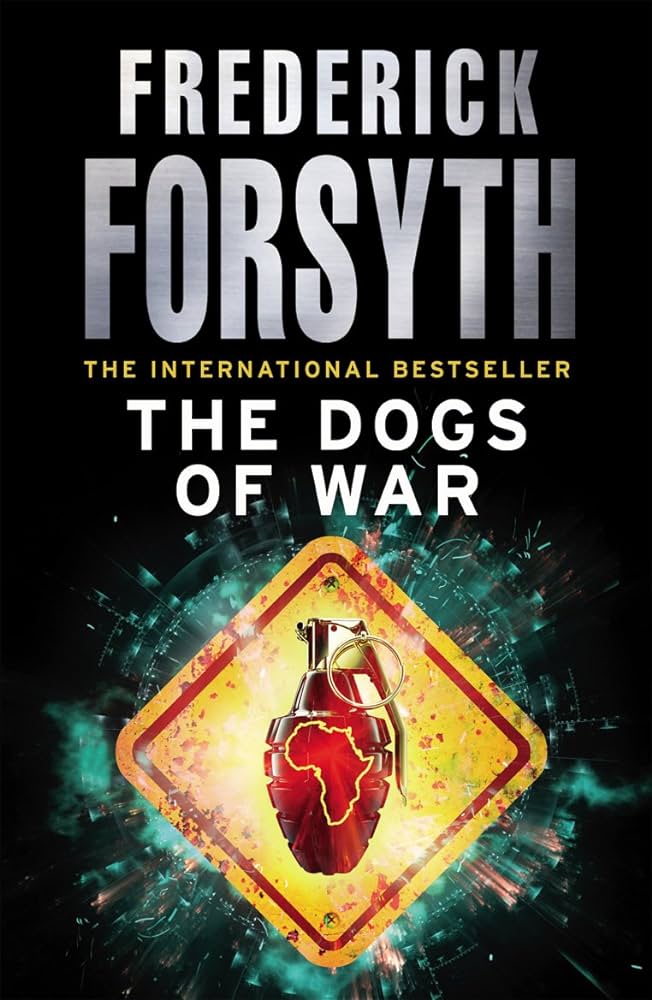
.png) Chhotebhai
Chhotebhai

This is an alarmist headline—it is meant to be. It is partly inspired by Fredrick Forsythe's novel Dogs of War, written 70 years ago. But this article is not fiction, for truth is stranger than fiction.
Polytheist religions have Gods of War. Monotheistic religions, like Christianity, have, on the other hand, used God to promote war. Two major wars are raging at this time in Ukraine and Gaza. Christians are confused and even polarised as to what stand to take on these ongoing conflicts. Hence, there is a need to address the issue dispassionately.
An elderly gentleman wanted to know which side we should pray for, as Israel is God's chosen race. I told him not to equate or confuse the modern nation-state of Israel with the chosen people of the Old Testament. Another person, probably suffering from Islamophobia, felt that Hamas was a terrorist organisation. Hence, Israel should just nuke the whole population of Gaza!
Let's face the truth: throughout history, including biblical times, religion has been used to justify war against the "other", often sanctifying and glorifying it. Sadly, religion is remembered more for the wars it made rather than the years of serenity with which people lived. We like sensationalism. That is why history books never talk of peaceful living but are full of war stories.
In the Old Testament, we read about several warriors who claimed that God (Yahweh) was on their side and fighting for them. The classic example is Joshua, considered an ideal warrior king.
In those days, hostilities ceased at sundown as warring parties returned to their respective camps. However, to defeat enemies, we read in the Bible that God caused the sun to stop setting to ensure Joshua's victory. I quote: "And the sun stood still and the moon halted until the people had taken vengeance on their enemies … The sun stood still in the middle of the sky and delayed its setting for almost a whole day … for Yahweh was fighting for Israel. Joshua and all Israel with him, then went back to their camp" (Jos 10:13-15).
Lest we jump to hasty and wrong conclusions, let me quote from the New Jerome Biblical Commentary (JBC), which is the most authentic of its kind. It states, "In Christian tradition Joshua becomes the prototype of the Christian warrior … used as a justification for extreme military action as in the Crusades" (JBC Pg 111). It continues that "the book of Joshua is a kind of historical-theological fiction and the sun being still is considered a poetic image" (JBC Pg 112).
This being so, we cannot use fictional or poetic accounts to justify religious warfare and claim that God is on our side. This is not my personal opinion but that of biblical scholars. Let's move on.
Have war games changed since Joshua's time? Can we imagine a modern army sounding the Last Post at sundown so the warriors can sleep soundly? It sounds ridiculous. Indeed, the definitions and parameters of war have changed drastically over time.
When I was in the NCC 55 years ago, we were trained to use a bayonet in close-armed conflict. In earlier times, warriors showed their do-or-die spirit on the battlefield, epitomised in Tennyson's epic poem "The Charge of the Light Brigade". Man-to-man combat in war is now obsolete.
Modern warfare is characterised by unmanned drones and missiles operated through remote control. These unmanned vehicles of mass destruction do not distinguish between a school, hospital or army garrison or between fighters and unarmed civilians, including women and children. Such modern warfare does not require courage or bravery; it is cowardice. Any damage that is outside the ambit of the reason for war is euphemistically referred to as "collateral damage".
The increasing fury and damage to life and property resulted in the Geneva Convention of 1864, followed by several other treaties. It made rules for treating civilians, prisoners of war and injured soldiers "outside the fight", hors de combat in French. Even in war, one cannot attack an ambulance or paratroopers in the air. Anti-personnel mines are banned, though 110 million active mines are still buried in 70 countries.
If war has changed, so has its Christian understanding. I shall quote from two primary sources—the Documents of the Second Vatican Council (Vat II) and the Catechism of the Catholic Church (CCC). In the early church, St Augustine of Hippo, influenced by Cicero, evolved a doctrine of a Just War that justified eliminating heretics! This is unimaginable today, so I quote from current teachings as found in the "Pastoral Constitution of the Church in the Modern World" (GS).
It condemns the "methodical extermination of an entire people, nation or ethnic minority" (GS 79). That's genocide. Further, one cannot claim that "all is fair between the warring parties" (Ibid). "The destruction of entire cities, with their population is a crime against God that needs to be condemned" (GS 80).
The Catechism adds, "The use of arms must not produce evils and disorders graver than the evil to be eliminated" (CCC 2309). "Every act of war directed to the indiscriminate destruction of whole cities or vast areas with their inhabitants is a crime against God" (CCC 2314).
In light of these teachings, what is happening in Ukraine and Gaza are unjustified acts that are crimes against God and humanity. This does not mean we should be passive spectators to aggression and injustice. Vatican II restores parity when it states:
"Governments cannot be denied the right to legitimate defence once every other means of peaceful settlement has been exhausted" (GS 79). Members of a country's armed forces are agents of security and freedom: "As long as they fulfil their role properly, they are making a genuine contribution to the establishment of peace" (Ibid).
The Catechism goes a step further in identifying the root causes of violence. "Injustice, excessive economic or social inequalities, envy, distrust and pride threaten peace and cause wars. Everything done to overcome these disorders contributes towards peace building and avoidance of war" (CCC 2317). So whether civilians or soldiers, we are called upon to be peacemakers, who shall be called children of God (Mat 5:9).
Hence, I would like to end on this positive note about how we can learn lessons from war and bring about change. The first example is Emperor Ashoka and his Mauryan Empire during the Kalinga War, which ended in 261 BC. Appalled at the devastation of war, Ashoka eschewed arms and governed his empire through non-violence.
The second example is more recent: Group Captain Leonard Cheshire, recipient of the Victoria Cross and several other bravery awards during World War II. He commanded the 617 Squadron of the RAF, which destroyed German dams on 16/17 May 1943 and is famously known as the Dam Busters.
Later, he destroyed an aero-engine factory in France that employed 300 French girls. He first flew sorties over the factory, forcing evacuation; only then did he swoop down to bomb it. Later, on 9th August 1945, he was sent as a British observer to see the atomic bomb dropped on Nagasaki.
Having witnessed so much destruction, he turned over a new leaf. He became a Catholic and established the Cheshire Homes for the terminally ill. In some way, he was trying to recompense society for what he had snatched from it. So God can write straight with crooked lines.
My third example is from the Vietnam War, which had been dragging on for years. Opposition to it in the USA was led by the hippie slogan "Make love, not war". What turned the tide, though, was the image of a 9-year-old naked girl, Phan Thi Kim Phuc, running with her back burning with a napalm bomb.
The image was captured by American photojournalist Nick Ut. It won the Pulitzer Prize titled "The Terror of War." So let us be game changers like Nick, Emperor Ashoka, and Cheshire. We can make a difference. Even if we are not in a war zone, we can be peacemakers in society, families, and communities. So let us not be Dogs of War but children of a loving God. Shalom—Shanti—Peace.